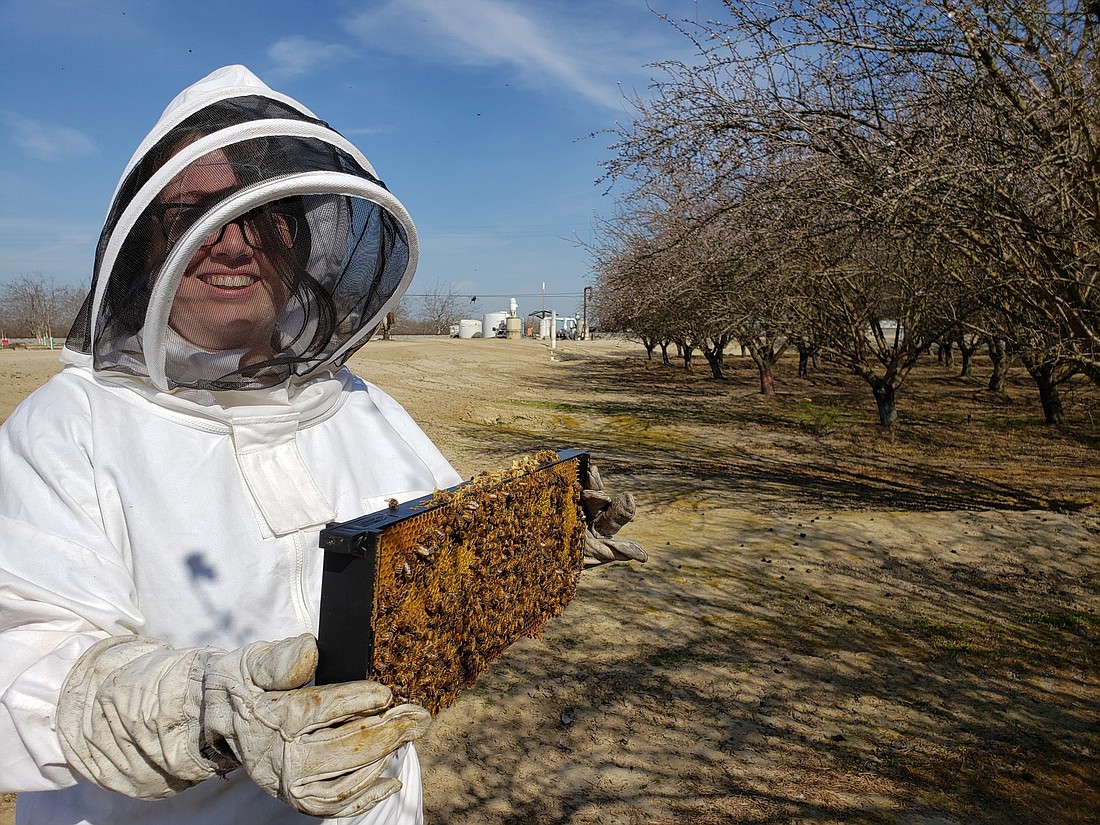- July 26, 2024
-
-
Loading

Loading

One thing is clear about Gianna Whitver: she's into bees.
“They’re very interesting insects,” she says. “I truly do love bees a lot.”
Across the country, bees have gotten more attention lately as people learn about the major impact bees have on the agricultural industry and the American food supply chain. Working in marketing and operations for a real estate investment and development company several years ago, Whitver, too, sought to know more about bees and beekeeping. She learned how land could be classified as agricultural and be considered for tax exemptions. Exemptions and qualifications vary by state, but in some cases, the presence of honeybees can qualify a landowner for exemptions.
That knowledge and her love of bees got Whitver thinking in 2015 about how she could start a business, an AgTech firm, to connect beekeepers who needed a place to keep their bees with landowners interested in tax savings. To help foster those connections, she founded LeaseHoney, a web portal and matchmaking site. So far, she’s signed up about 400 people across the country on the platform — about 60% landowners and 40% beekeepers. Now, to grow the company, she’s focusing on building buzz and gaining traction in Florida.
Pasco County-based Whitver, 28, began her entrepreneurial pursuit with first-hand research, talking to beekeepers about their needs and experiences. She asked them whether finding land for their hives was really a problem they faced. She learned it was. On the landowner side, she delved further into potential benefits, from saving money to pollinating crops. Whitver spent about two years learning about bees, beekeepers and the industry. “I think it’s a very underserved niche,” she says.
Her mission became clear — figure out how to match the two groups. She built a website and people started visiting it almost immediately, finding it through Google searches. “I have done very little marketing,” she says. “That points to how it’s an issue that people are looking to be solved.”
So far, Whitver has matched beekeepers and landowners using a more manual process, but she’s working on technology to streamline it. “I envision soon turning it into a real marketplace platform,” she says. “I would love for people to be able to log in and match automatically without me doing it myself.”
Whitver is self-funding the company and building it as a solopreneur, with some help from a part-time employee. Revenue and profits for LeaseHoney could come in the form of a percentage of what landowners save in taxes, although Whitver says she’s still working out some specifics of the business model.
In late 2019, Whitver quit her job in cybersecurity marketing because LeaseHoney was gaining traction. She still works as a cybersecurity marketing consultant, but she’s focusing on LeaseHoney.
‘Traffic on the website hasn’t really slowed down. Agriculture is essential — beekeepers still have to beekeep.’ — Gianna Whitver, LeaseHoney
Whitver started 2020 by attending the American Beekeeping Federation Conference in January. Then in February, she met with beekeepers to learn about almond pollination in California. The pandemic has affected her travel, but it has hasn’t impacted the business in a negative way. “I love to go and meet people over coffee, and I love to drive out to the fields and talk to beekeepers,” says Whitver. “Traffic on the website hasn’t really slowed down. Agriculture is essential — beekeepers still have to beekeep.”
Recently, Whitver was part of the Tampa Bay Innovation Center Summer 2020 Accelerator cohort. One key lesson from the program came with a catchy phrase: “Nail it and scale it.” And that’s exactly what she’s working on now with LeaseHoney, particularly in Florida. “Focus in very specifically first instead of the massive, broad approach,” she says.
LeaseHoney’s users include people in about 32 states. There are many users in Texas, which Whitver attributes to the state’s favorable laws for beekeeping as an agricultural use. The two other biggest states for LeaseHoney are Florida and California. Her focus now is on growing her user base in Florida. Every day, new people sign up.
The months ahead will involve improving the LeaseHoney website, doing more user research and delving deeper into the intricacies of agricultural tax exemptions. “What makes this such a big juicy strawberry of a problem is the regulation for bees are different in every state and county,” she says.
Whitver is also thinking about how to keep people on the LeaseHoney platform after beekeepers and landowners are matched. The startup could also offer marketing tools for beekeepers, for instance, so users could get value from the company on an ongoing basis. “I really love bees and I love beekeepers, too,” she says. “I think the future looks good.”